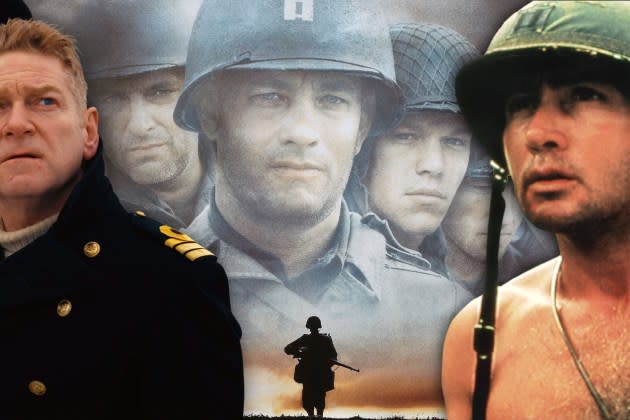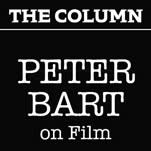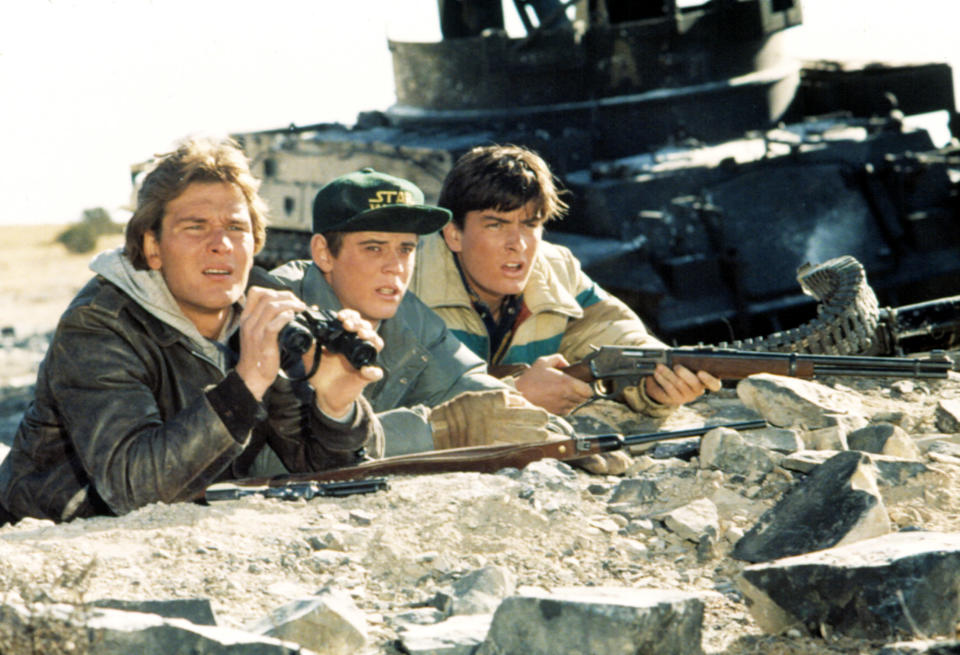Peter Bart: War Is Hell. Onscreen, It’s Also A Blur


The Israeli-Gaza morass this week seemed to defy coherent media coverage, reminding me of critic David Thomson’s conclusion about Hollywood war movies and how they “used to celebrate courage, not confusion.”
Thomson’s new book, The Fatal Alliance, deals with the history of the war movie from Gallipoli to Saving Private Ryan, guiding readers from “war is hell” to “war is a blur.”
More from Deadline
The war movie once constituted a reliable genre product for Hollywood, along with the Western and the musical. To be sure, Israel-Gaza is a tragedy of enormous and dramatic proportions, as symbolized by its chaotic cross-cutting from drones to tunnels.
From Paths of Glory to Dunkirk, war movies once set forth a structure and pathos to guide audiences through the nihilism of combat.
Thomson reminds us of the pageantry of the knights on horseback in Olivier’s Henry V, the churning helicopters in Apocalypse Now or the mayhem of Mogadishu in Black Hawk Down.
During World War II, American families faithfully charted the strategies of war, with toy soldiers neatly arrayed across the dining room table so the children could understand the tactical symmetry. There were good guys and bad, the sides clearly delineated.
These them-vs.-us certitudes are not being served up to cable viewers this month, who nonetheless are spurring solid ratings gains following years of erosion. CNN ratings are up 31% month-to-month (up 16% year-to-year), but MSNBC still registers higher overall viewership. Fox News still commands a significant lead over both.
Excluding Napoleon, Hollywood itself has a skimpy slate of war movies coming up, which is likely to its benefit. Thomson is even retroactively skeptical about Hollywood’s World War II propaganda movies churned out by prestige directors like Frank Capra and John Ford. “Can we really digest the truth of war or do we settle for its show?” he asks.

A 1984 movie titled Red Dawn is remembered as a reflection of these ambiguities. Red Dawn began its journey as a passionate antiwar script by Kevin Reynolds, focusing on an anarchic band of youths in the Southwest who are surprised by a Russian-Cuban invasion – fictional, to be sure. Reynolds, then a young writer-director, planned a modest Lord of the Flies-type of film. Troubled by its message, the MGM studio assigned John Milius to rewrite and direct Red Dawn with a new pro-war tilt – it was now about teenage patriots.
Worried by its confused messages, the studio then surprised Hollywood by reaching outside the community to hire Alexander Haig, the “I-am-in-command” general of the Reagan years, to assume control of the script and the production. The result was an over-budget movie whose narrative was submerged in ambiguity.
Haig might have been better suited for Napoleon. The audience for Red Dawn could never quite figure out what it was about.
Sign up for Deadline's Newsletter. For the latest news, follow us on Facebook, Twitter, and Instagram.

 Yahoo News
Yahoo News 
